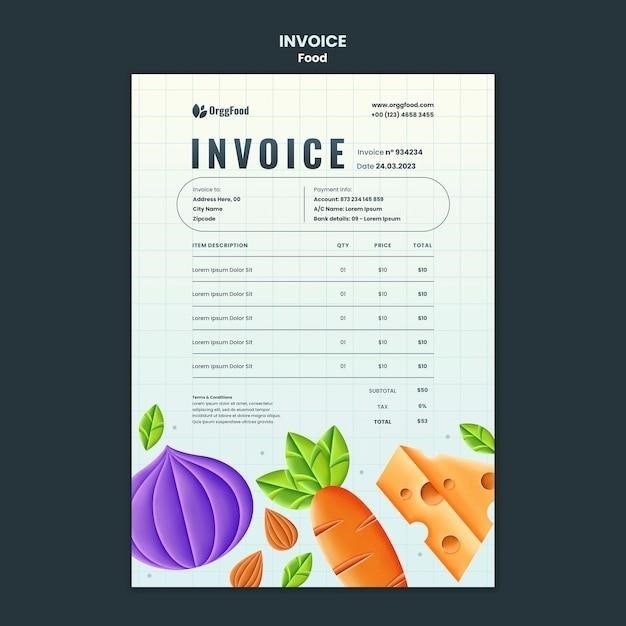Habakkuk Study Guide PDF⁚ A Comprehensive Overview
This comprehensive guide explores the Book of Habakkuk, offering in-depth analysis of its historical context, prophetic message, and enduring relevance․ It delves into Habakkuk’s dialogue with God, examining his questions about injustice and God’s responses․ The guide also provides practical application for modern life․
Author and Date of Habakkuk
The identity of the prophet Habakkuk remains shrouded in some mystery․ While the book itself identifies him as a prophet (Habakkuk 1⁚1), the meaning of his name is debated․ Some scholars suggest it means “to embrace,” others “to wrestle,” both interpretations reflecting the book’s content․ His background is largely unknown, lacking the detailed biographical information found for some other prophets․ Rabbinic traditions offer additional perspectives, but these lack definitive historical corroboration․
Pinpointing the exact date of Habakkuk’s prophetic ministry requires careful consideration of historical and textual evidence․ Scholars generally place his activity during the reign of Jehoiakim, king of Judah, sometime between 609-606 BC․ This period corresponds with the rise of the Babylonian empire and the increasing threat to Judah․ The social and political climate reflected in Habakkuk’s concerns aligns with this timeframe, although the precise year of composition remains a matter of scholarly discussion, based on interpretations of events described in the text and comparison with the writings of contemporary prophets like Jeremiah․
Habakkuk 1⁚1-4⁚ The Prophet’s Initial Concerns
Habakkuk’s opening verses immediately establish his central concern⁚ the prevalence of injustice and violence within Judah․ He doesn’t shy away from directly addressing God, expressing his distress and bewilderment at the seemingly unchecked wickedness surrounding him․ The phrase “burden” (or “oracle”) in Habakkuk 1⁚1 signifies a divinely revealed message, but in this case, it’s a message of anguish and questioning rather than one of straightforward prophecy․ Habakkuk’s lament isn’t a simple complaint; it’s a profound struggle with faith in the face of suffering․ He observes the widespread lawlessness, the oppression of the righteous, and the prosperity of the wicked, leading him to question God’s justice and seeming inaction․ His questions are not born of rebellion, but of a deep-seated desire for understanding and a yearning for God to intervene․
The initial verses establish the foundational tension that drives the narrative⁚ Habakkuk’s faith wrestles with the reality of evil, setting the stage for his subsequent dialogue with God and the unfolding revelation of God’s plan․ This initial outcry forms the core of his spiritual struggle and sets the scene for the rest of the book’s powerful message․
Habakkuk’s Unique Dialogue with God
Unlike many prophetic books featuring pronouncements from God to the prophet and then to the people, Habakkuk presents a distinctive back-and-forth conversation between the prophet and God․ This dialogue is not a formal debate, but rather a heartfelt exchange reflecting Habakkuk’s wrestling with faith in the face of overwhelming injustice․ He directly questions God’s actions, expressing his confusion and pain at the apparent triumph of evil․ This intimate exchange reveals a God who is not offended by Habakkuk’s honest doubts but patiently engages with his concerns․
The unique nature of this dialogue highlights the accessibility and personal nature of God’s relationship with his prophets, even when those prophets grapple with difficult questions․ It demonstrates that doubt and questioning are not necessarily antithetical to faith but can, in fact, be pathways to deeper understanding and a stronger relationship with God․ The book’s structure underscores the idea that God invites honest dialogue, allowing his people to express their struggles and receive guidance and reassurance in return․ This interactive approach distinguishes Habakkuk from other prophetic books and makes its message particularly relevant to those facing similar struggles today․
The Problem of Evil in Habakkuk
The Book of Habakkuk grapples head-on with the perplexing problem of evil, a theme resonating deeply throughout human history․ Habakkuk witnesses the blatant injustice and suffering inflicted upon the righteous while the wicked prosper, leading him to question God’s justice and sovereignty․ This isn’t merely a philosophical exercise; it’s a cry from the heart of a prophet overwhelmed by the disparity between God’s proclaimed righteousness and the reality he observes․ The prophet’s anguish is palpable, mirroring the struggles of countless individuals who have questioned God’s presence in the face of suffering․
Habakkuk’s lament isn’t a rejection of faith but rather a desperate plea for understanding․ His persistent questioning compels readers to confront their own struggles with the existence of evil and suffering․ The book doesn’t offer simplistic answers but rather invites a deeper engagement with the complexities of faith, reminding us that questioning God is not a sign of weakness but can be a path towards a more robust and nuanced faith․ The inherent tension between God’s promises and the reality of suffering forms the core of Habakkuk’s struggle, a struggle that continues to resonate with believers across generations․
Habakkuk’s Question Regarding Injustice
Central to Habakkuk’s prophetic lament is his profound questioning of the pervasive injustice he witnesses․ He observes the wicked flourishing while the righteous suffer, a reality that deeply troubles his conscience and fuels his fervent prayer to God․ This isn’t merely a casual observation; it’s a cry born from a heart burdened by the discrepancy between God’s declared justice and the harsh realities of his world․ Habakkuk’s questions are not those of a doubter rejecting faith, but rather of a believer wrestling with a seemingly paradoxical situation․
His persistent inquiry serves as a powerful example for readers grappling with similar struggles․ The prophet’s honesty in expressing his doubts and frustrations models a courageous approach to faith․ He doesn’t shy away from confronting God with the uncomfortable realities of suffering and oppression, demonstrating that genuine faith can accommodate wrestling with difficult questions without compromising its integrity․ The book of Habakkuk demonstrates the importance of seeking understanding and wrestling with the mysteries of faith, even when faced with seemingly unanswerable questions․ The enduring power of Habakkuk’s questions lies in their universal relevance, echoing the concerns of believers throughout history․
God’s Response to Habakkuk’s Complaints
God’s response to Habakkuk’s anguished cries isn’t a simple dismissal or immediate resolution of the injustice․ Instead, it unfolds as a complex and multifaceted dialogue, revealing God’s character and plan in ways that challenge Habakkuk’s immediate understanding․ God doesn’t ignore the prophet’s pain or dismiss his concerns as insignificant․ Rather, He acknowledges the severity of the situation, validating Habakkuk’s emotional response․ The divine response unfolds gradually, revealing a divine perspective that transcends the prophet’s limited timeframe․
God’s answer involves a promise of future judgment against the wicked, specifically the Babylonians, who will be used as instruments of divine justice․ This revelation, however, doesn’t provide immediate comfort; instead, it presents a paradox—God will use evil to punish evil․ The response further highlights God’s sovereignty and ultimate control, even amidst seemingly chaotic events․ The divine strategy, though unsettling to Habakkuk, showcases God’s long-term perspective and unwavering commitment to justice․ This divine response invites readers to consider God’s methods, which often involve complex and seemingly paradoxical ways of working out His purposes in history․ The response encourages patience and faith in God’s ultimate plan, even when the path seems unclear․
The Theme of Trusting God’s Goodness
The overarching theme of Habakkuk centers on unwavering trust in God’s goodness, even amidst overwhelming suffering and injustice․ Habakkuk’s initial outcry reveals a deep faith wrestling with doubt, reflecting a common human struggle․ The prophet’s persistent questioning underscores the importance of honest engagement with God, even when facing seemingly insurmountable challenges․ God’s eventual response, while not offering immediate relief, reassures Habakkuk and the reader of His ultimate justice and unwavering love․ This theme of trust isn’t passive acceptance but rather an active choice to believe in God’s character and plan, despite the apparent contradictions and difficulties of life․
The book emphasizes that true faith endures through trials and uncertainties․ The righteous will live by faith becomes a powerful affirmation of the enduring power of trust in God’s goodness amidst adversity․ Habakkuk’s journey showcases the transformative power of faith, moving from initial questioning to ultimate praise and confidence in God’s sovereign control․ The message resonates profoundly with those grappling with suffering or questioning God’s justice․ It offers comfort and encouragement, reminding us that our faith isn’t shaken by unanswered questions, but rather strengthened by our unwavering trust in God’s goodness and ultimate plan․
Habakkuk’s Prophetic Activity and Historical Context
Habakkuk’s prophetic ministry unfolded during a turbulent period in Judah’s history, likely between 609 and 606 BC, during the reign of Jehoiakim․ This era was marked by significant social and political upheaval, with widespread injustice and violence pervading society․ The prophet’s concerns weren’t abstract; they stemmed from the tangible realities of his time, witnessing the oppression of the righteous and the unchecked prosperity of the wicked․ His ministry coincided with the rise of Babylon as a dominant power in the Near East, a context that heavily influences the book’s themes of judgment and God’s sovereign control over nations․
Habakkuk’s prophetic activity wasn’t limited to simply denouncing wrongdoing; it involved a direct, intimate dialogue with God, expressing his own doubts and anxieties․ This unique interaction showcases a prophet grappling with the complexities of faith and suffering․ The historical context provides crucial insight into Habakkuk’s message; his words weren’t isolated pronouncements but rather a response to the specific circumstances of his time, resonating with the challenges and injustices faced by his people․ Understanding this historical backdrop illuminates the depth and urgency of his prophetic pronouncements, making his message powerfully relevant for understanding God’s interaction with His people throughout history․

Key Verse and Central Theme⁚ Faith in God’s Sovereignty
The pivotal verse in Habakkuk, encapsulating its central theme, is Habakkuk 2⁚4⁚ “But the righteous will live by their faithfulness․” This seemingly simple statement carries profound theological weight, emphasizing unwavering trust in God’s ultimate authority and goodness, even amidst suffering and injustice․ The “righteous” aren’t defined by outward perfection but by their steadfast faith, their commitment to God despite the apparent contradictions of life․ The verse speaks to the enduring power of faith as the foundation for navigating life’s challenges and uncertainties․ This theme isn’t merely passive resignation; it’s an active, confident reliance on God’s sovereign plan, acknowledging His justice and goodness, even when they seem hidden or delayed․
The book doesn’t shy away from grappling with the problem of evil, with Habakkuk directly questioning God’s seeming inaction in the face of wickedness․ However, the resolution lies not in finding simple answers but in embracing the unwavering belief that God is ultimately in control․ The “faithfulness” mentioned isn’t blind faith but a trust rooted in the character of God, a belief that transcends immediate understanding․ This theme resonates deeply with believers throughout history, offering a powerful message of hope and perseverance in the face of adversity, reminding us that even when life’s circumstances seem inexplicable, God’s ultimate sovereignty remains․
Study Guide Structure and Methodology
This Habakkuk study guide employs a structured approach designed for both individual and group study․ Each section begins with a concise overview of the relevant passage, providing historical context and key themes․ Interactive elements, such as questions for reflection and discussion, encourage active engagement with the text․ Cross-referencing to other relevant scriptures deepens understanding and reveals interconnected themes within the broader biblical narrative․ The guide incorporates a variety of learning styles, using a blend of narrative explanations, insightful commentary, and practical application exercises․ This multi-faceted approach aims to facilitate a comprehensive understanding of Habakkuk’s message and its enduring relevance․
The methodology emphasizes careful exegesis, seeking to understand the text within its original historical and literary context․ This is complemented by a focus on hermeneutics, applying the principles of biblical interpretation to derive relevant meaning for contemporary readers․ The guide avoids simplistic or overly allegorical interpretations, instead striving for a balanced and nuanced understanding that respects the complexity of the text․ Regular review sections reinforce key concepts and ensure a cohesive learning experience․ The overall aim is to equip readers with the tools and insights necessary to engage meaningfully with the profound theological and ethical questions raised in the Book of Habakkuk․
Application of Habakkuk’s Message to Modern Life
Habakkuk’s wrestling with God resonates deeply with contemporary struggles․ His questioning of injustice and suffering mirrors our own experiences in a world marked by inequality and hardship․ The prophet’s persistent faith, even amidst doubt, offers a powerful model for navigating life’s uncertainties․ The book’s central theme—trusting God’s sovereignty—provides a framework for enduring challenges and maintaining hope in the face of adversity․ Habakkuk’s experience encourages us to bring our honest questions and doubts to God, acknowledging our struggles without compromising our faith․
The book’s emphasis on righteous living, even when surrounded by wickedness, challenges us to live lives of integrity and justice in a world often characterized by moral compromise․ Habakkuk’s message calls us to actively engage in seeking justice and compassion for the marginalized and oppressed, mirroring God’s own concern for the vulnerable․ His unwavering faith in God’s ultimate justice, even when delayed, provides a source of hope and perseverance in the face of seemingly insurmountable obstacles․ By studying Habakkuk, we are challenged to examine our own faith, wrestle with our doubts, and ultimately find strength and hope in God’s unwavering love and faithfulness․
Exploring the Book’s Genre and Literary Features
The Book of Habakkuk presents a unique blend of genres, defying easy categorization․ While primarily classified as prophetic literature, its structure and content exhibit characteristics of other literary forms․ The book’s dialogue between Habakkuk and God resembles a psalm or hymn in its lyrical and emotional intensity․ The prophet’s lamentations and prayers express deep anguish and heartfelt questioning, reflecting the intimate, personal nature of his relationship with God․ This direct engagement with the divine sets Habakkuk apart from other prophetic books, which often focus on pronouncements of judgment or promises of restoration․
The book’s use of imagery and symbolism enhances its poetic and evocative quality․ The vivid descriptions of Judah’s sins and the impending Babylonian invasion create a powerful sense of urgency and impending doom․ The contrasting images of wickedness and righteousness underscore the central theme of God’s justice and faithfulness․ Habakkuk’s use of parallelism and repetition, typical of Hebrew poetry, reinforces the emotional impact and memorability of his message․ The book’s concise yet profound message, delivered through a combination of lament, prayer, and divine response, showcases the power and beauty of concise prophetic communication․
Further Study and Resources

To deepen your understanding of Habakkuk, consider exploring various commentaries and Bible study resources․ Many reputable scholars have dedicated works to this often-overlooked prophetic book, offering insightful perspectives on its historical context, theological themes, and literary features․ These commentaries provide detailed explanations of difficult passages and offer diverse interpretations of Habakkuk’s message․ You can find these resources in libraries, bookstores specializing in religious texts, and online through academic databases and digital libraries․
Furthermore, engaging with online Bible study groups and forums can foster a collaborative learning environment․ Sharing insights and perspectives with fellow believers can enrich your understanding of Habakkuk and its relevance to modern life․ Several websites and mobile applications offer interactive Bible study tools, including cross-references, lexicons, and commentary excerpts, making it easier to delve deeper into the text․ Remember to critically evaluate resources, comparing different perspectives and seeking out reputable scholars and institutions to ensure the accuracy and theological soundness of the information you are using․


0 Comments